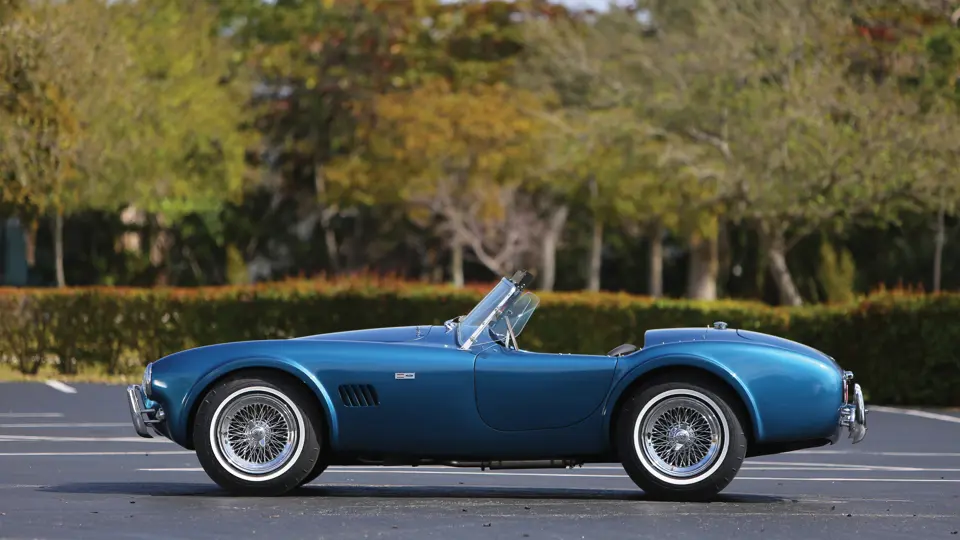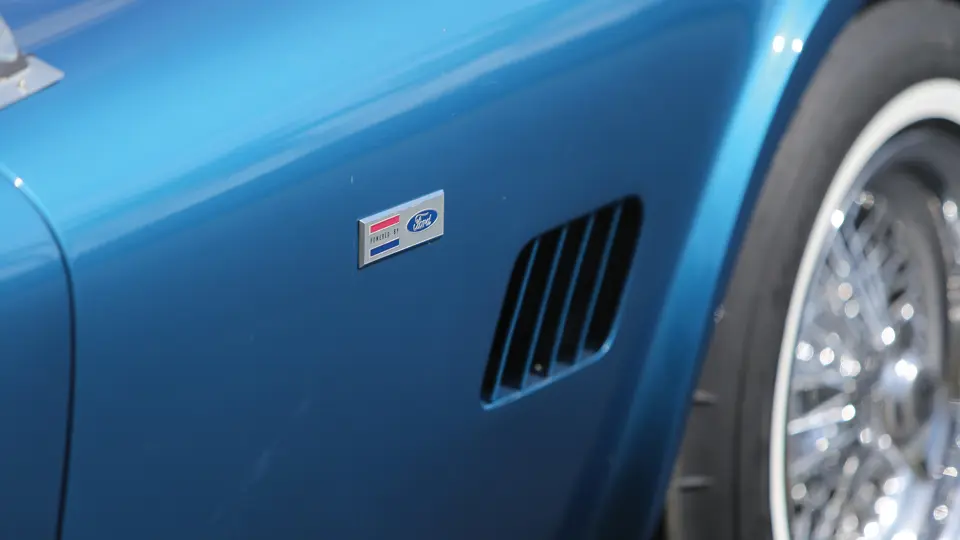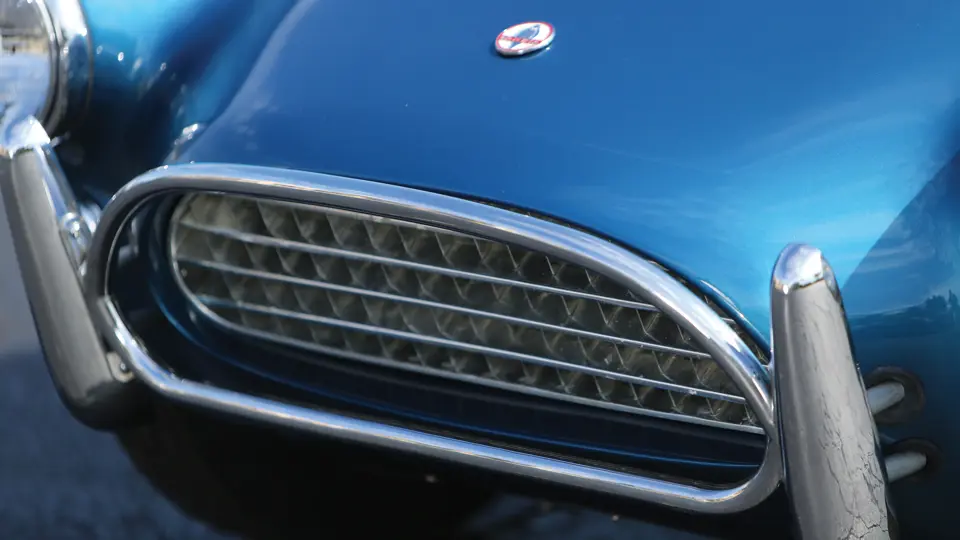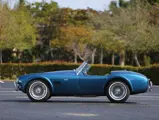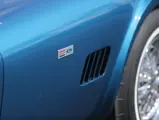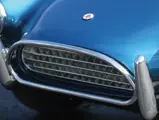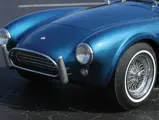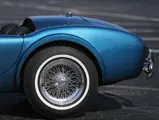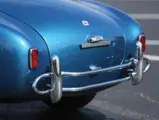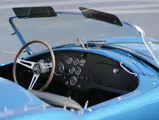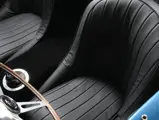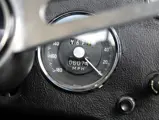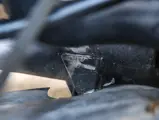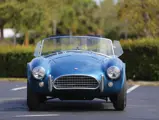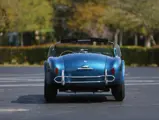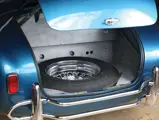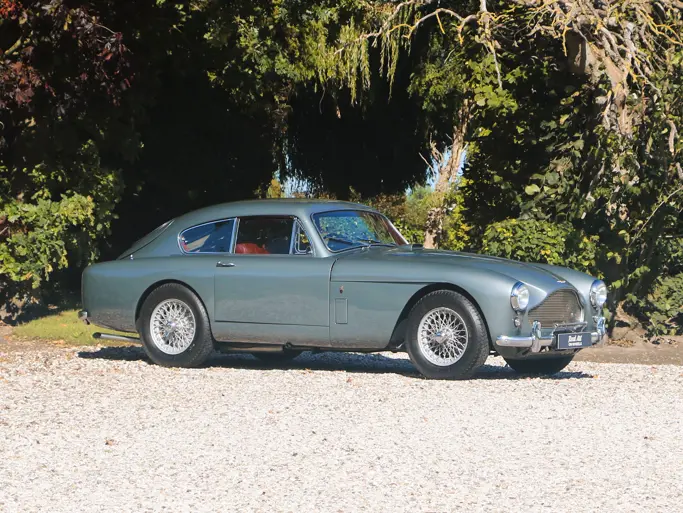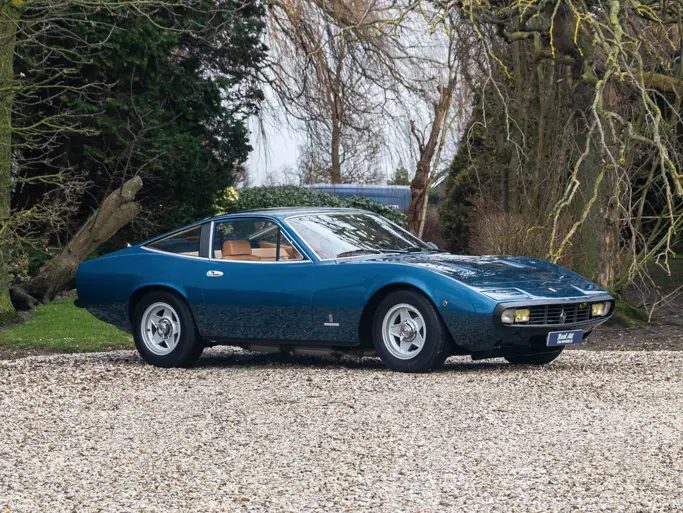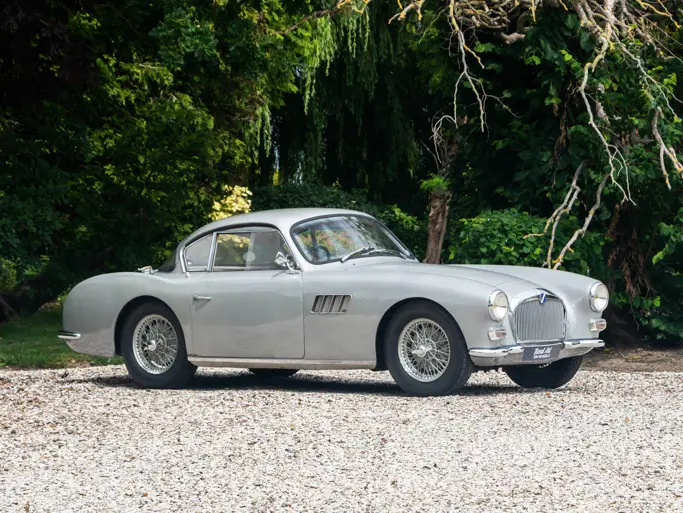306 bhp, 289 cu. in. Ford OHV V-8 engine with an aluminum intake and Holley carburetor, aluminum Borg-Warner T-10 four-speed manual transmission, independent front and rear suspension with A-arms, transverse leaf springs, and tube shock absorbers, rack-and-pinion steering, and four-wheel hydraulic disc brakes. Wheelbase: 90 in.
The Shelby Cobra combined British handling and finesse with American muscle, and it was the car to have when it was unveiled in 1963. Using the AC Ace as a starting point, Carroll Shelby shoehorned a powerful Ford V-8 engine to replace the Ace’s aging and anemic inline-six. The result was nothing short of spectacular, and it proved to be not just a thrilling street car but also a very competitive racer. At the Cobra’s first outing in Riverside, California, in February 1963, Dave MacDonald handedly put everything on the track in his rearview mirror. Those who saw it in action were immediately smitten.
While the first 75 Cobras to leave Shelby’s California facility were fitted with 260-cubic inch V-8 engines, the cars that would follow received a slightly larger 289-cubic inch engine. The Cobra was quoted at 271 brake horsepower and weighed in at only 2,000 pounds, which was nearly 500 pounds lighter than the Corvette. As a result of the Cobra’s seemingly instant success, Carroll Shelby went from being a well-known racing driver to a household name, paving the way for his Shelby-branded vehicles for years to come.
This Cobra, chassis CSX 2147, was fitted with a 289-cubic inch engine, a single Holley carburetor with an aluminum intake, an aluminum Borg-Warner T-10 transmission, and desirable rack-and-pinion steering. According to the car’s entry in the Shelby World Registry of Cobras and GT40s, it was originally invoiced to Jacques Passino, of the Ford Motor Company. Passino knew Cobras well and played an important role within Ford, as he was the director of the company’s Special Products division. The car was invoiced to him on September 16, 1963, for $5,182, and it included such features as “Class A accessories,” a luggage rack, and WSW tires, all purchased with the added incentive of a Ford Motor Company discount. Passino kept the car for just over a year and then returned it to Shelby American in November 1964 with 12,336 miles on its odometer,.
While the early ownership history of the car remains unknown after Passino’s ownership, it is known that the car was acquired by Paul Horn, of Santa Monica, California, in May 1974 from the car’s third owner. Horn restored the car, refinishing it in Guardsman Blue over its tan upholstery and fitting new wheels and a roll bar. The car left his ownership in 1977 and was sold through Ferrari of Los Gatos to Edward Bonneau, who then passed it to Peter Ballow, also of California, one year later.
In 1982, CSX 2147 was acquired by Hal Morrison, of Saint Helena, California, who subsequently sold the car to Rod Skinner, of Napa, California. The car appeared at SAAC-9 in Napa in August 1984, and there, it wore a custom Oregon license plate that read SHELBY. Two years later, it was purchased by Gary Penir, also of Napa. Penir showed the car at SAAC-13 in Santa Rosa in 1988 and took Second Place in the popular vote for Cobra class. He would retain the car for the next 25 years. Eventually, Penir decided to move to Hawaii but opted not to bring his Cobra with him, storing it in his daughter’s garage in California. However, he would often drive his Cobra on return visits.
Ultimately, Penir sold CSX 2147 to its current Texas-based owner, who has maintained it in his collection for the past five years. In his custody, the car was restored to its original color combination of Guardsman Blue over a black interior, and it looks truly gorgeous, fitted with its original wheels. This Cobra still retains its original 289 V-8, and it also comes equipped with its correct top bows, convertible top, tonneau cover, side curtains, and owner’s manuals.
The Shelby Cobra is just as desirable as it was on the day the first example left Shelby’s facilities, and it is largely considered to be the most iconic American sports car ever produced. To many, the 289 is the ideal iteration of Carroll Shelby’s most famous car. With enough power to easily outrun modern traffic, yet not enough to be nearly as aggressive as the 427, these are truly wonderful automobiles to be enjoyed out on the open road.
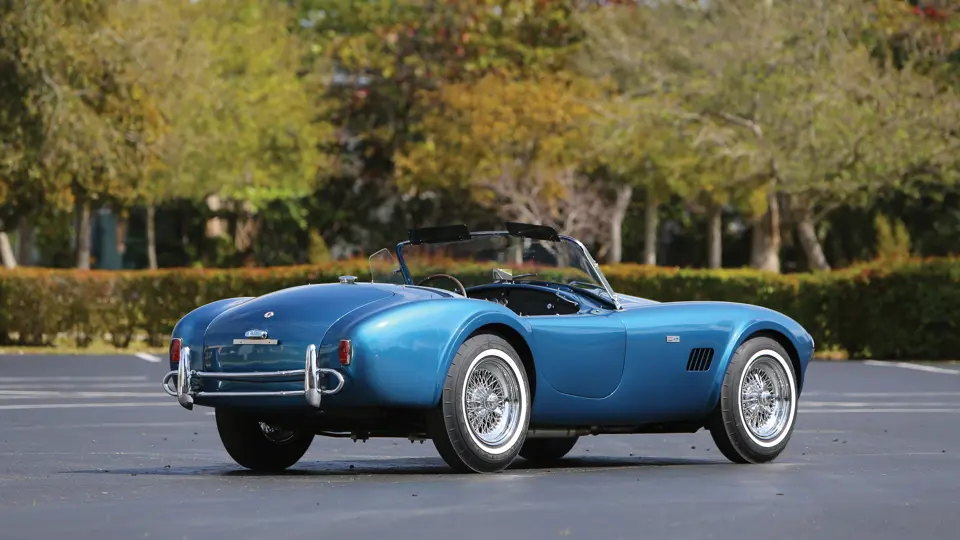
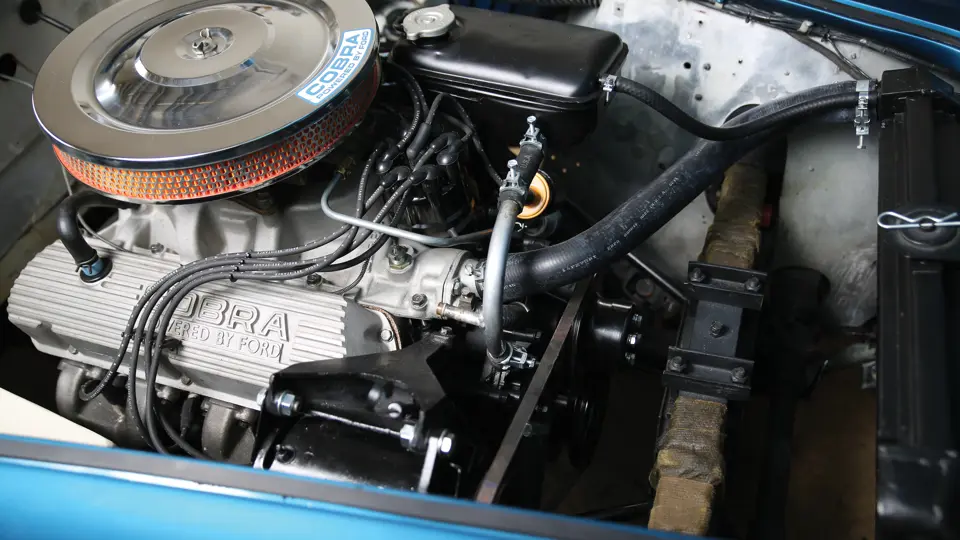


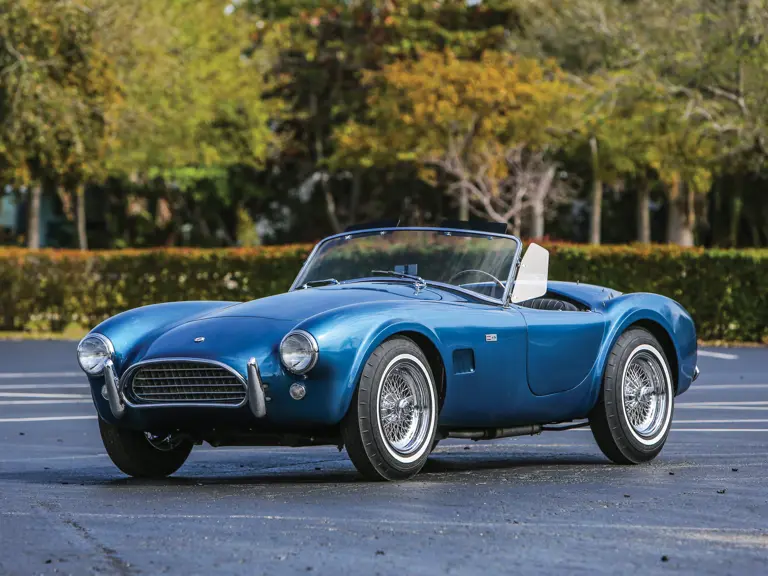
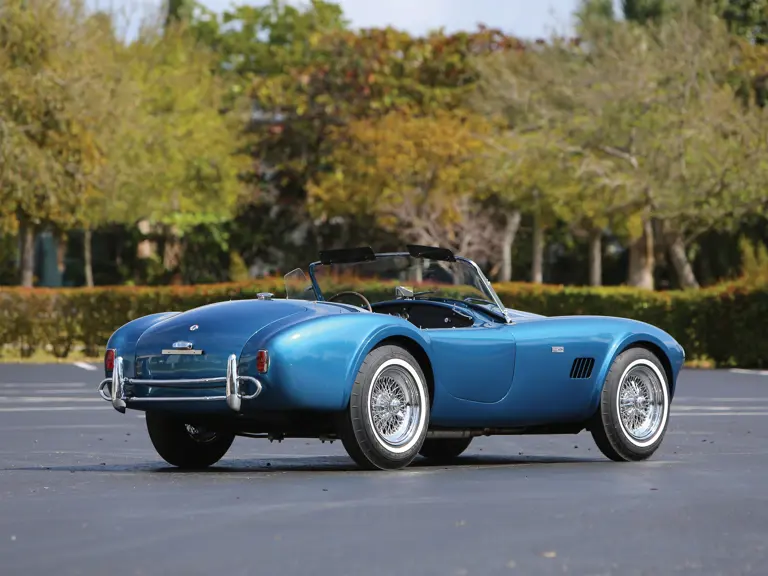
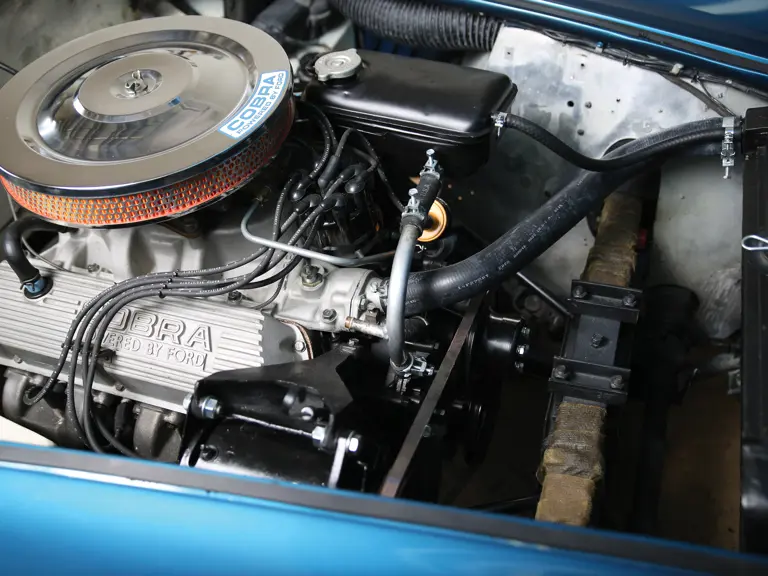
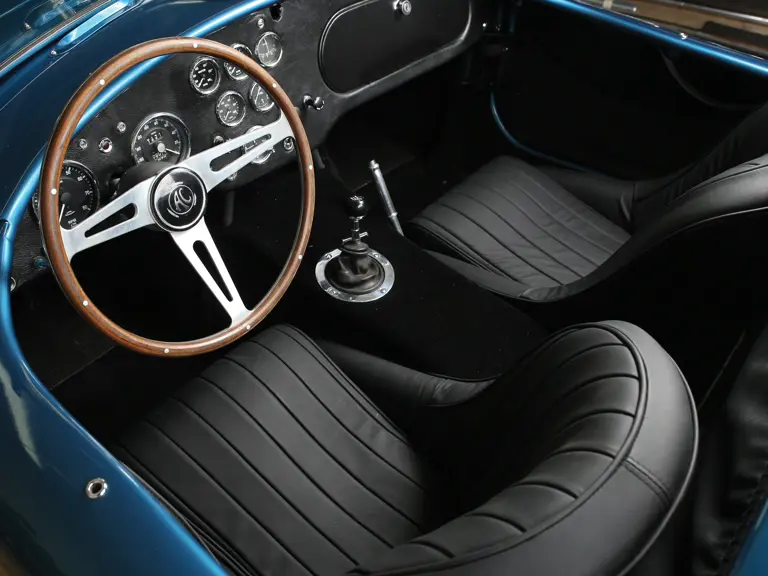
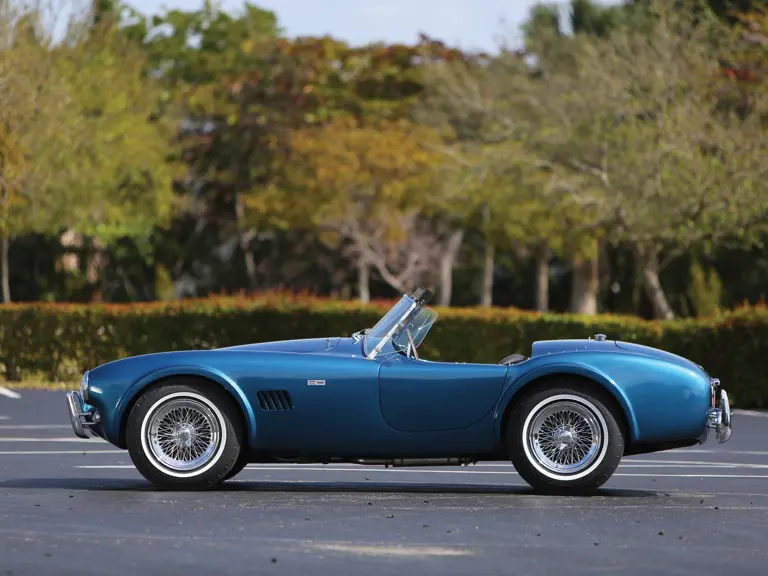
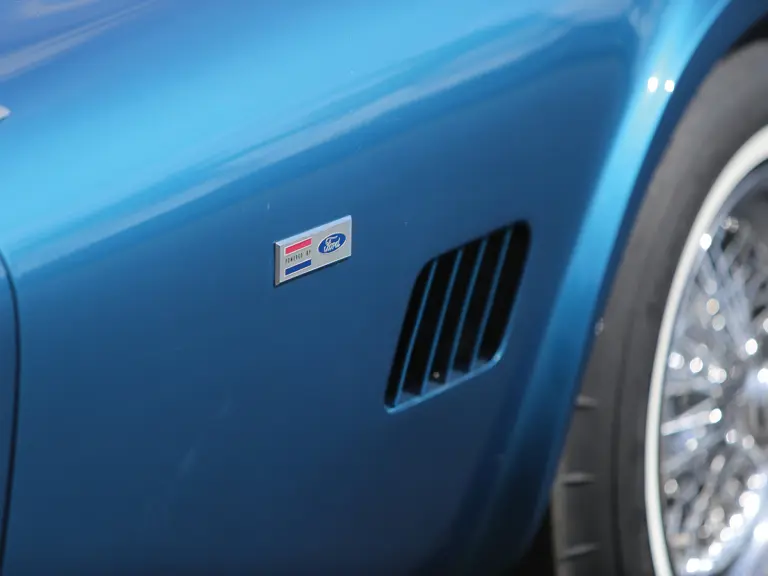
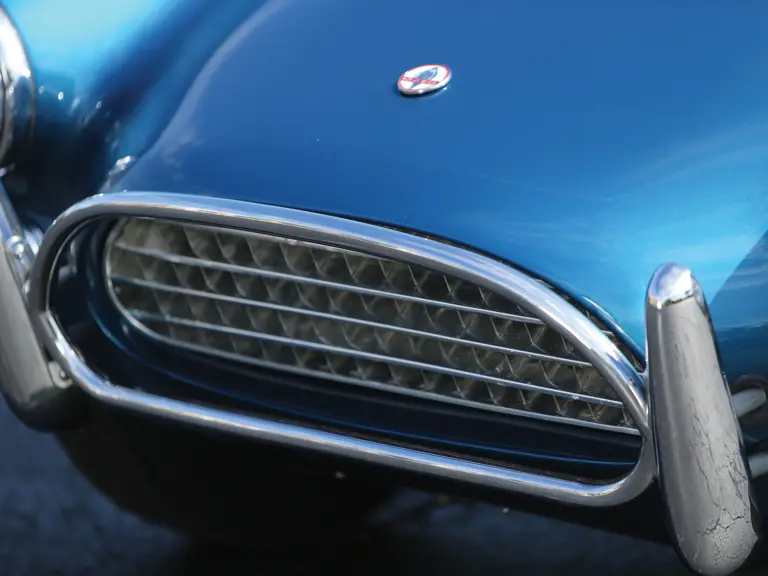
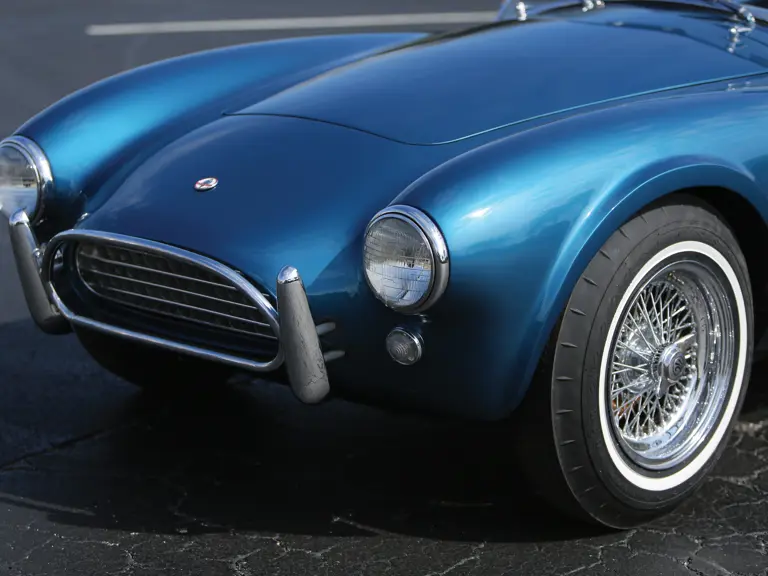


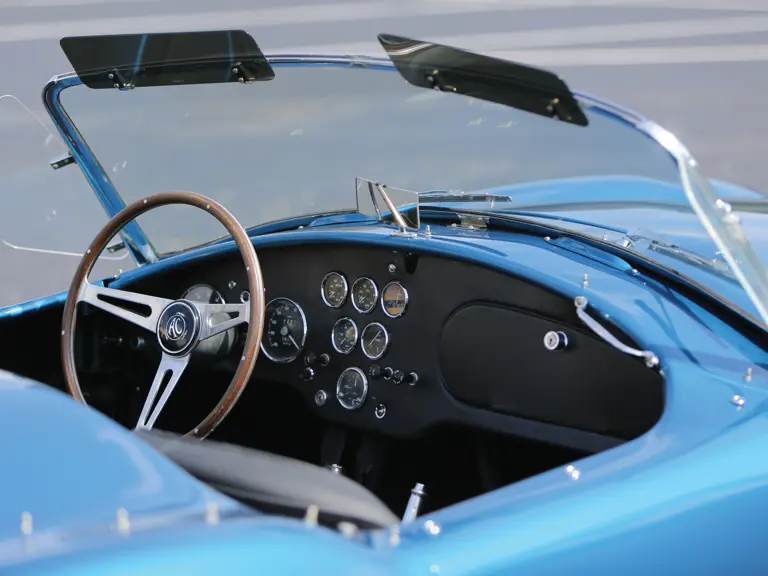
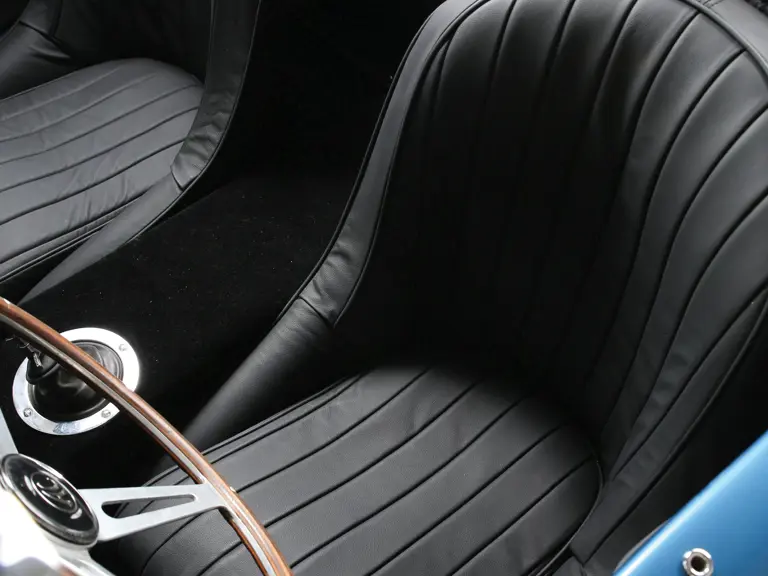
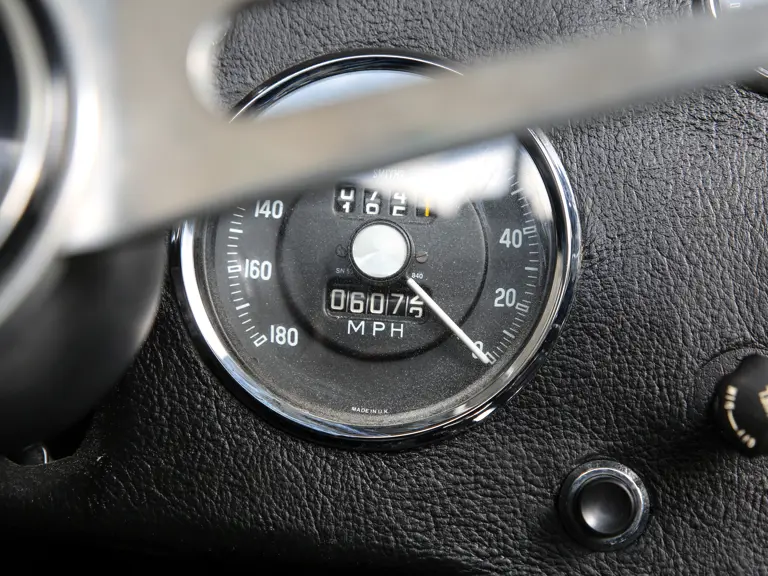
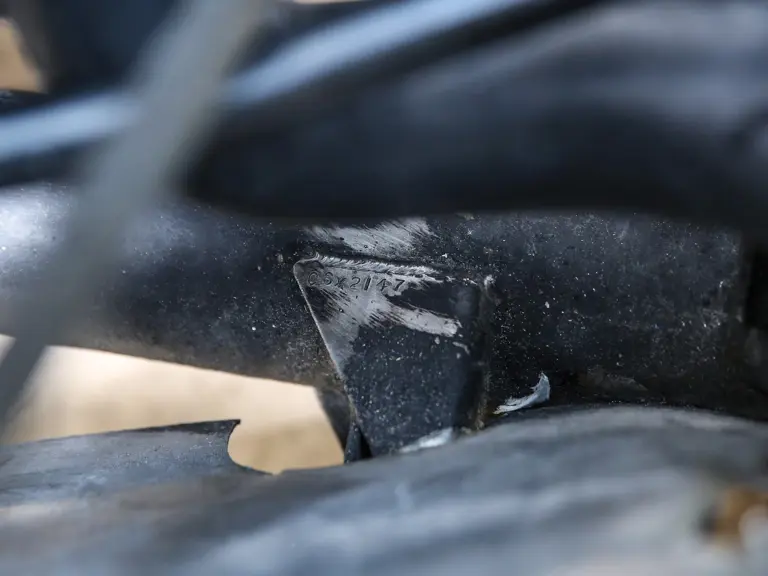
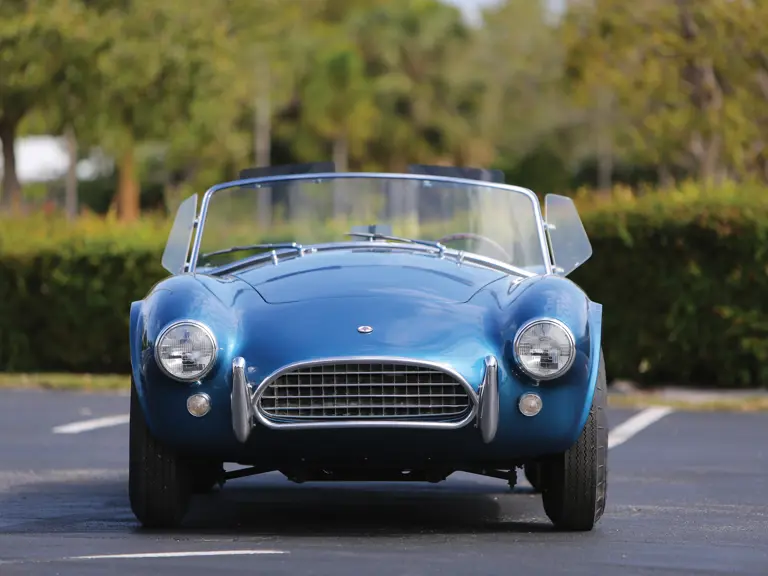
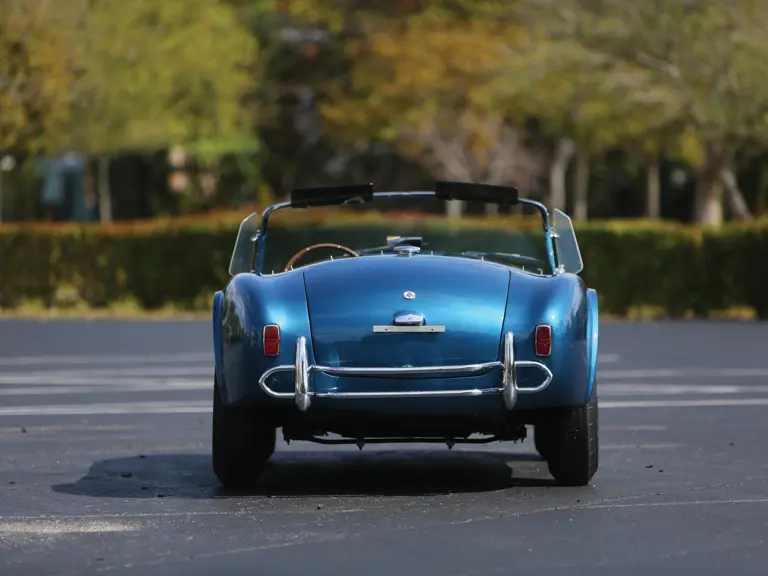
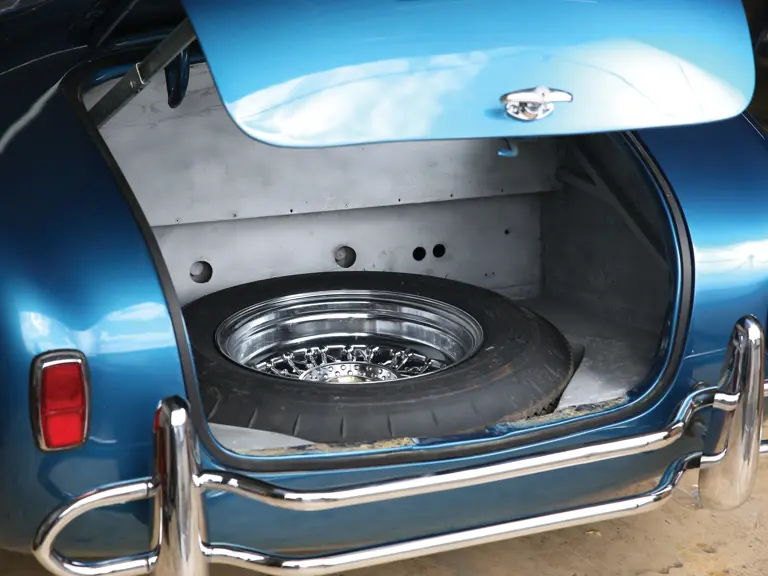
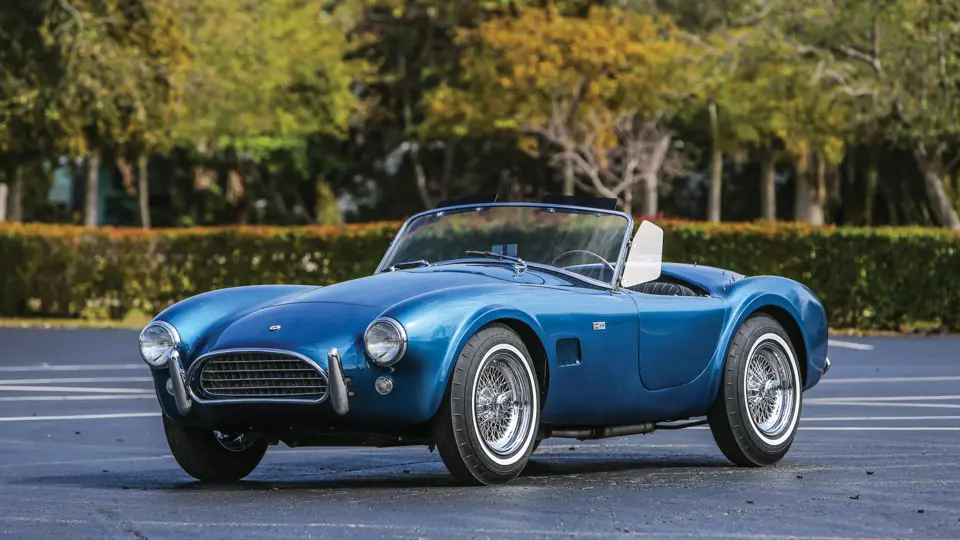
 | Amelia Island, Florida
| Amelia Island, Florida
